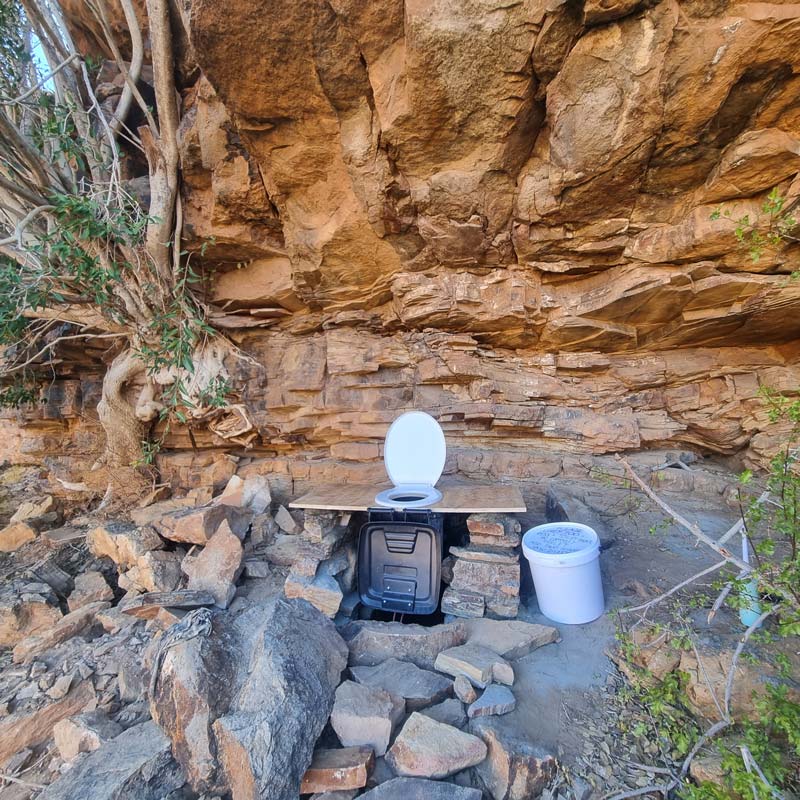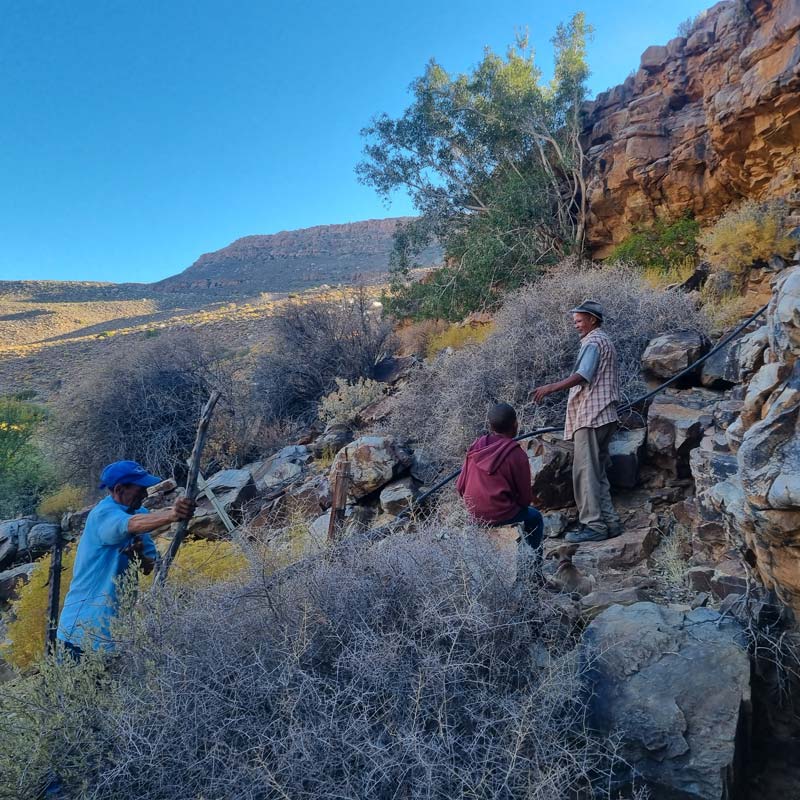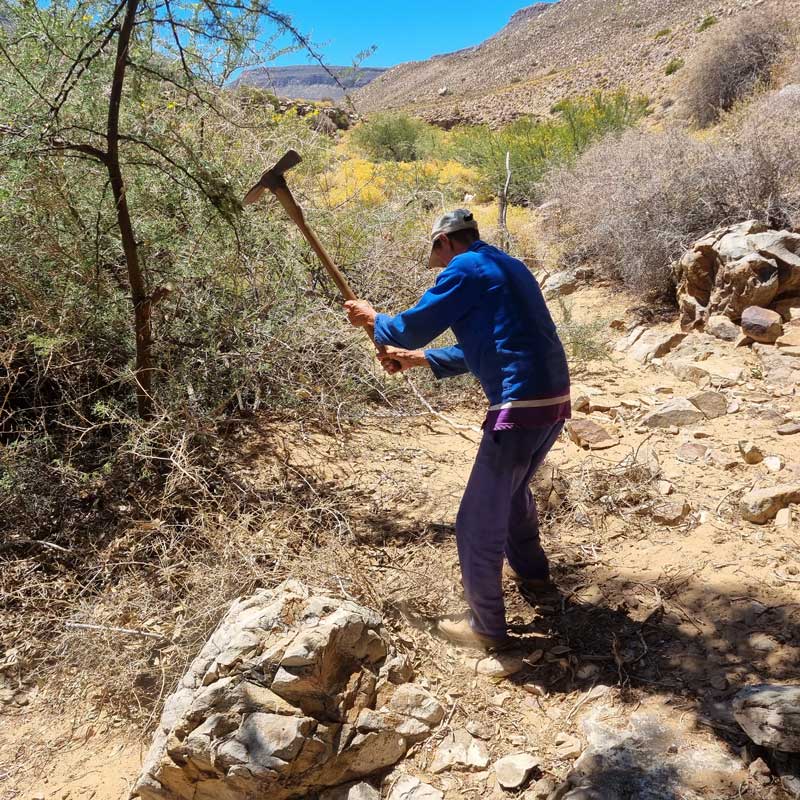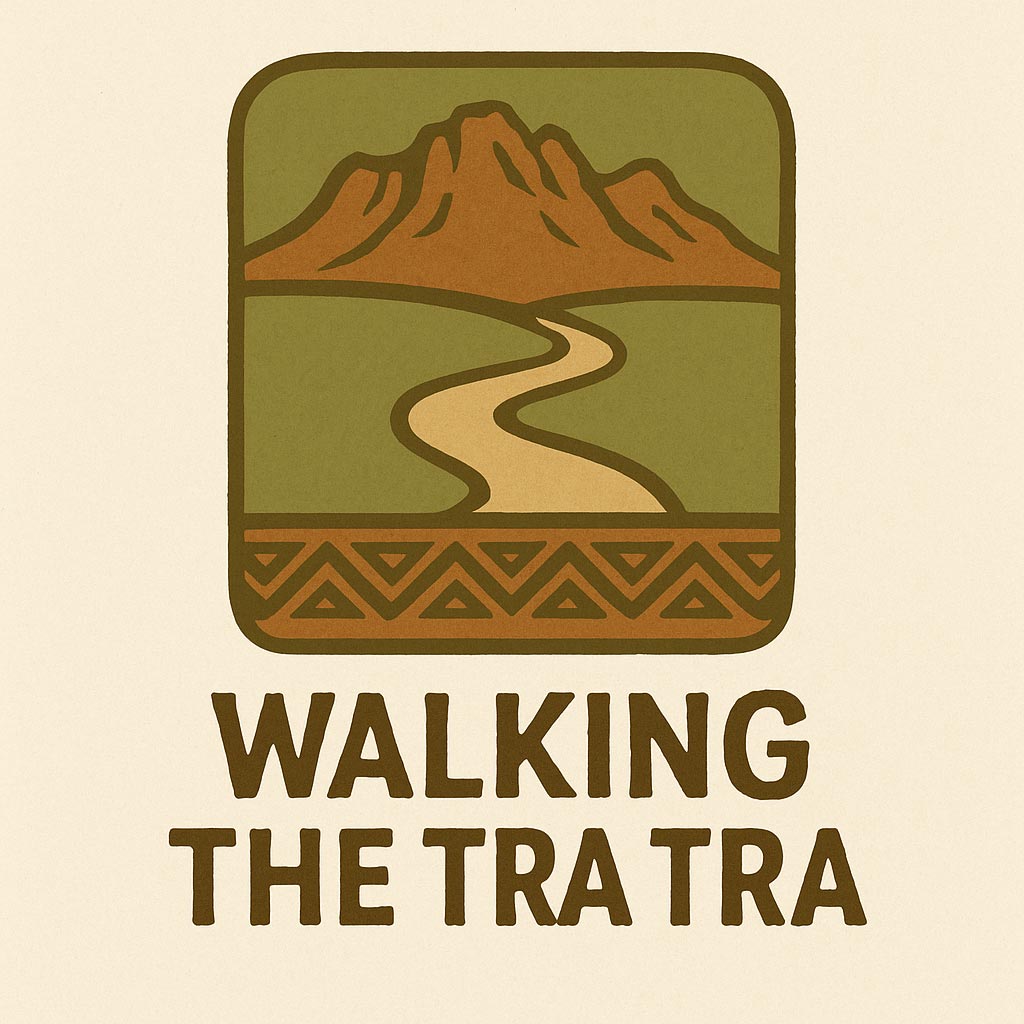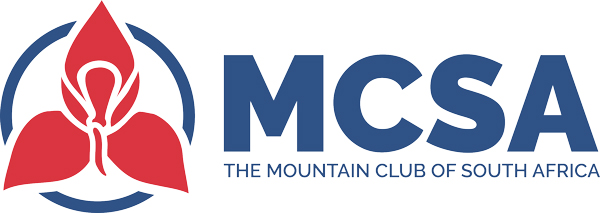Connecting new conservational pathways with Indigenous culture and nature
PROJECT TITLE
Walking the Tra Tra
NAME OF ORGANISATION
Mountain Club of South Africa
Snapshot
Walking the Tra Tra brings together mountain sport, environmental care, and support for local cultural expression. The project is built through direct collaboration with Cederberg residents, local youth, and partnering landowners. By responding to community needs the initiative strengthens land-based livelihoods and helps grow eco-tourism opportunities in a way that honours the vision and requests of those who live there.
View of MPA Assessor
This is no doubt a big project in a remote country. The project encourages trail runners and walkers to engage with two special physical and cultural landscapes, to not look at the landscape from afar, but to be part of it. This builds awareness and personal experience of the need for sustainability and of changes being wrought by climate change, such as impacts of drought on local Indigenous people.
Project Objectives and Vision
Walking the Tra Tra is a project that bridges two dramatically contrasting landscapes in South Africa: the vast, arid expanse of the Tankwa desert, stretching for hundreds of kilometres, and the lush, water-rich Tra Tra valley, which winds its way upward toward its source the Cederberg mountains. These river and mountain valleys are home to descendants of the Indigenous Khoi people, living off the land in the same way that they have done for centuries.
The project brings together mountain sport, environmental care, and support for local cultural expression. It is built through direct collaboration with Cederberg residents, local youth, and partnering landowners. By responding to community needs – such as creating a bush camp at Agterfonteinskloof and the Tra Tra Trail event that expands access to remote trails – the initiative strengthens land-based livelihoods and helps grow eco-tourism opportunities in a way that honours the vision and requests of those who live there.
The MCSA has been connecting with the community and the landscape since 2022 with the trail opening and first editions of the trail run. Only recently the project entered a more structured and intentional phase, with defined goals, community infrastructure, partnerships, and environmental action plans. For example the organisation hasn’t really enabled any guides or connected any tourists with the bush camp, and it hasn’t started with any other trail network establishment. These will be next steps building on prior groundwork and represent a fresh beginning from 2025 onwards.
Walking the Tra Tra envisions a future where Indigenous knowledge, ecological stewardship, and respectful trail-based tourism come together to support both land and community. The vision is to create a model of regenerative, community-led eco-tourism that honours Khoi heritage, protects fragile ecosystems, and offers visitors meaningful engagement with both landscape and story. It seeks to work alongside growing movements of cultural pride and existing local resilience already present in the region.
The project’s goals are threefold:
- Support for cultural expression and knowledge-sharing
Local guides are encouraged and supported to share their wilderness knowledge, interpreting rock art, identifying medicinal plants, and narrating the historical and ecological significance of the trail. These stories and practices are shared on local terms, in ways meaningful to the community. This deepens the connection to the culture expressed by Khoi consciousness and offers us all the opportunity to learn how to live with nature and not against it.
- Environmental sustainability and climate adaptation
The project integrates off-grid, low-impact infrastructure such as composting toilets and fountain-fed water tanks. It also supports community observation and response to climate-related threats, such as the recent rupture of a natural dam that introduced invasive fish into the Tra Tra River, endangering native species.
- Locally rooted eco-tourism
By creating a bush camp, hosting the annual Tra Tra Trail Run, and employing youth as guides, the project fosters land-based livelihoods. All developments are led in conversation with local communities to ensure lasting benefit and shared ownership.
The aim is not to scale quickly, but to deepen extending trails, expanding cultural interpretation, and building capacity for community-led conservation. Walking the Tra Tra is a long-term investment in people, place, and the stories that bind them.
Contact Details, Discover More & Support
UIAA Mountain Protection Award Nominees

